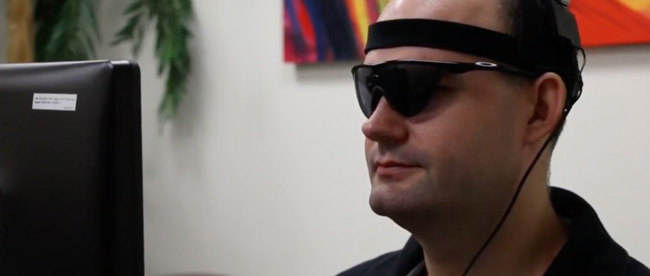Orion: Clinical Trial Helps People With Acquired Blindness See
There is a very interesting clinical trial currently going on that is giving blind people the ability to see. All participants in this study have been blind for years, and thanks to a prosthesis called Orion that has been surgically implanted in their brain, they are helping researchers study how blind people will be able to see in the future without the use of eyes.
Typically, whenever we think of vision, we automatically assume it’s made possible by our eyes. However, vision is made possible by our brain. Whatever’s captured by our retina is converted into neural signals that are sent to the visual part of brain for processing. Our brain can map every spot in our visual field to a spot that represents that spatial location. It’s just like pointillism, where thousands of tiny, separate dots are combined to form one larger image. The objective of this research is to do something very similar – stimulate blind people’s brain at certain locations to create a point of light. This is especially helpful for people who lost vision later in their lives. (acquired blindness) In their case, the visual part of the brain is undamaged but is not being used because it is not getting any information through their eyes.
In this trial, Orion is able to bypass the mechanism of sending visual signals through eyes with the aid of a camera mounted on a pair of sunglasses. This camera captures images from the visual field and sends them straight to the brain implant (that consists of 60 electrodes), creates a stimulation in the brain and produces a percept of the corresponding visual image. In theory, if the brain implant had hundreds of thousands of electrodes, it may have the potential to produce a visually rich image.
At this point, this trial is more of a feasibility study, with the focus on the device design concept. So far, the participants can identify where objects are located but may not be able to tell what exactly that object is. Even though this study is in its preliminary stages, it is still exciting to see the kind of potential it can unlock in people with acquired blindness.
Read the source link and watch the video below to learn more about Orion.
Source: Baylor College of Medicine


This was a very exciting, encouraging video to watch. My 43 year old son, has battled cancer and the treatments for 28 years. His tumor was orginally on his pitutary gland. Over the years the surgeries and treaments have taken all but a small window of vision in the inside corner of the right eye. A recent mutation and reoccurance of the tumor have now taken that vision. We would be interested in the possibilty of him taking
part in a clinical trial, and or further information on the accessability of the device. We live in Montana.
Thank you for all you are doing.
Nancy Story